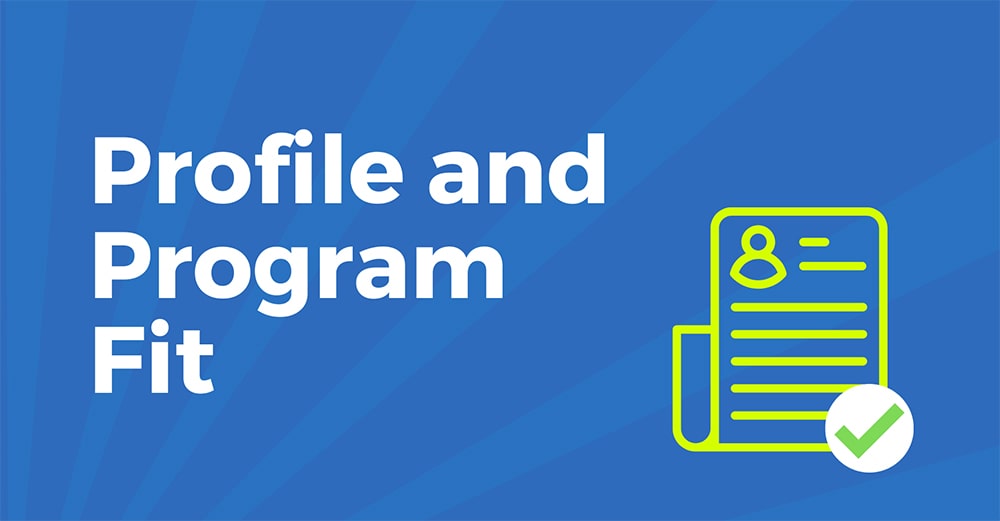There are thousands of MBA Colleges in India now, but only the top few can add value to your profile. Lakhs of students compete for these top few colleges and a fraction of them actually land their dream B Schools. With such a huge number of students competing for a select number of colleges, it becomes immensely difficult for the institutes and selectors to filter the right set of candidates. Hence, MBA Colleges employ a set of criteria which is very similar across the industry, to asses the candidates.
These criteria have been devised to assess the candidates based on 3 parameters –
-
Entrance Test scores & Track Record – The academic and professional track records of a candidate provide valuable information about their background and capabilities. It demonstrates their dedication, discipline, and willingness to learn and grow, as well as their potential to contribute to their team, organization, and society as a whole.

Entrance tests like CAT, XAT, and GMAT are specifically designed to evaluate a candidate's aptitude and potential to succeed in a business management program. MBA colleges rely on these scores to assess the academic ability of the candidate. A high score indicates that the candidate has a solid foundation in quantitative reasoning, analytical skills, and verbal ability, which are critical skills required in an MBA program. MBA colleges give significant weightage to entrance test scores because MBA graduates are expected to be proficient in number crunching, logic application, and effective communication.
However, it is essential to note that entrance test scores are just screening criteria and not the sole deciding factor in the selection process. Many other factors are taken into consideration, including the candidate's academic and professional background, leadership skills, personal attributes, and the ability to contribute positively to the MBA program.
A student's academic track record is proof of their academic strength and ability to thrive in a fast-paced MBA environment that presents a vast amount of knowledge in a compressed time frame. In contrast, the professional track record provides insight into the candidate's career aspirations, leadership qualities, and work ethics. MBA colleges use these as criteria to evaluate the candidate's clarity of goals, the growth, and impact they have made in their professional life.
Furthermore, students who have demonstrated leadership abilities, exceptional growth in their careers or have handled difficult situations get an edge over other candidates. Such qualities demonstrate their potential to be valuable assets to their future organizations and make significant contributions to the society they work in.
An ideal candidate should have scored better than the required average and performed well uniformly across the sections. He/she should have an upward moving track record with little or no drops. He/she should have shown a linear professional growth and should have clearly stated his/her achievements and initiatives. Any demonstration of leadership qualities is bonus.
-
Essays & Interview performance – Essays and other written components are an important aspect of the MBA admissions process. These tools help MBA colleges to judge a candidate's thought process, analytical skills, and ability to communicate ideas in a clear and precise manner. The colleges do not expect long essays or high-level literary knowledge, but instead, they focus on the structure, flow, and clarity of the content. Great Lakes, a well-known MBA college in India, conducts an Analytical Writing Test (AWT) as a proxy to essays/SOPs. During the AWT, the candidate is assessed based on his or her approach to the topic, the way of communicating ideas, and the assessment of the topic. Candidates who perform well on these three parameters tend to score well in this round.

-
The interview round is the most critical stage of the admissions process. It is the only face-to-face interaction between the college and the candidate, and it can significantly impact the candidate's selection chances, regardless of their scores in entrance exams. During the interview, the college assesses the candidate's clarity of thoughts, communication skills, confidence, willingness to learn, business awareness, and logical thinking. The interviewer also uses this opportunity to check the program fit of candidates and their ability to contribute to the cohort. For the candidate, it is a chance to cover up any shortcomings in their profile through proper justification and reasoning. MBA colleges also assess a candidate's ability to communicate and contribute to the cohort during the admission process. Therefore, candidates should highlight their strengths and skills in their application essays and interviews. They should also be able to offer equal value to the cohort as they will gain from them. MBA colleges seek students who can contribute to classroom discussions and add value to group projects.
The academic and professional track records of the candidate play a crucial role in the MBA admissions process. These records are a testament to the candidate's rigor, willingness to learn and grow, and their ability to contribute to their team, organization, and society as a whole.
A student's academic track record is a proof that the student is academically strong enough to thrive in the fast-paced MBA environment and absorb the ocean of knowledge that MBA presents in a compressed time frame. On the other hand, the professional track record provides insight into their career aspirations, leadership qualities, and work ethics. MBA colleges use these records as criteria to check the candidate's clarity of goals and the growth and impact he or she has made. Candidates who have demonstrated exceptional growth or leadership qualities, or have handled difficult situations, tend to have an edge over other candidates during the admissions process.
MBA Colleges prefer candidates who are able to communicate well in their essay write-ups. They look for candidates who have a clarity of thought, a valid reason and aspiration to pursue MBA and are able to demonstrate their willingness and fitness towards the program. A well-researched candidate will definitely have an edge over others. Good research about the program and the college shows interest and curiosity to learn.
-
Diversity in Profile and Program Fit – In the competitive world of MBA admissions, a candidate's ability to contribute to the program is just as important as their academic and professional track records. An MBA is not just a degree to add to one's resume but rather an interactive experience that involves equal contributions from both the faculty and the students. MBA colleges seek to admit candidates who can add value to the cohort as much as they can gain from them. As such, they prefer candidates from diverse backgrounds to bring a variety of experiences to the classroom.
MBA colleges carefully select their students based on their profiles, professional background, career goals, areas of interest, and a combination of previous factors. Each college has its unique personality, and the students they select reflect that. Therefore, it is important for applicants to research the college and form an average persona of the present cohort to check their course fit.

The importance of program fit cannot be overlooked since MBA admissions are just the beginning of the journey. Students need to thrive in an atmosphere that suits their needs and interests. If a student is a fish out of water, they may face a difficult time in the course, let alone optimizing the outcomes. It is crucial to find a college that aligns with one's career aspirations and relevance of experience. In essence, MBA is a two-way street, and candidates are expected to contribute as much as they are expected to gain from the program.
MBA Colleges prefer candidates with a diverse background but with quality work experience/academic record. Students should be able to add value to the cohort. This is important for both the candidate and the college to have similar goals and expectations with respect to the course outcomes.
Written by -
Admissions Committee
Great Lakes Institute of Management









